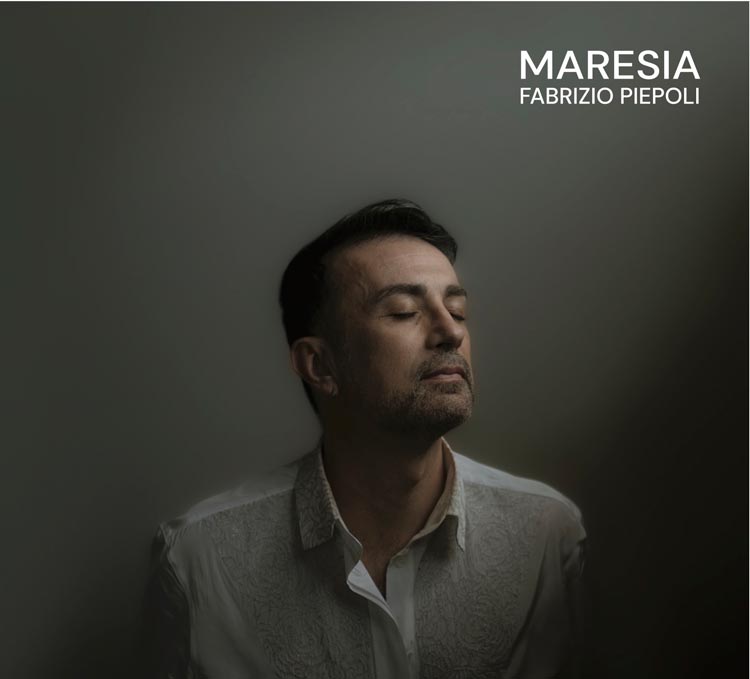Fabrizio Piepoli – Maresia (Zero Nove, 2022)
‘Maresia‘ is the third album by Apulian composer, singer and multi-instrumentalist Fabrizio Piepoli, where he elegantly explores Portuguese fado, arbëreshë (Italo-Albanian) culture, tarantella and the Mediterranean.
“In Portuguese, the word ‘Maresia’ means the sea foam that vaporizes in the air when the wind whips the crest of the waves. It is the sweat of the sea playing as it tries to chase itself. It is a race with open arms embodying a waltzing, tarantella-like gait, which communicates a wingspan sense of expansion and an oceanic joy. Maresia is the incessant mixing of languages, stories, and people of the past, the present, and the future. My song is a dream and maresia“.
Piepoli uses his enchanting light tenor vocals that allow him to submerge into the low, baritone register sounds as well as stretch out to the acute mezzo-soprano range. His multifaceted voice easily flows from western styles to eastern modes, sometimes using the melismatic style.
The musician from Bari says about the material on the album: “These songs are part of a fluid history that expresses something new each time. I gathered sounds, words, gestures, and memories into my hands, threw them in the air, then they fell back onto me, all mixed up. My past, the part that continues to speak to me even now, I chase after and disintegrate, mixing it with other elements like voices in the streets of a market, and then it reappears again, telling me things I still do not know yet“.

The musical instruments used include the battente, or ‘beating’ guitar, that symbolizes the Southern Italian tradition along with the Arabic ud or oud, and the Turkish saz, often processed through effects and loop machines. Piepolli calls this new fashioned sound the Tarabtella, where Apulian tarantella meets the tarab of the Arabic melody, the pleasure of dance, and the gratification of listening.

Seemingly distant musical genres engage in an exuberant dialog, where the Gargano tarantella meets Portuguese fado, Arabic and Turkish instruments, as well as the arbëreshë tradition and migration songs.
Buy Maresia


